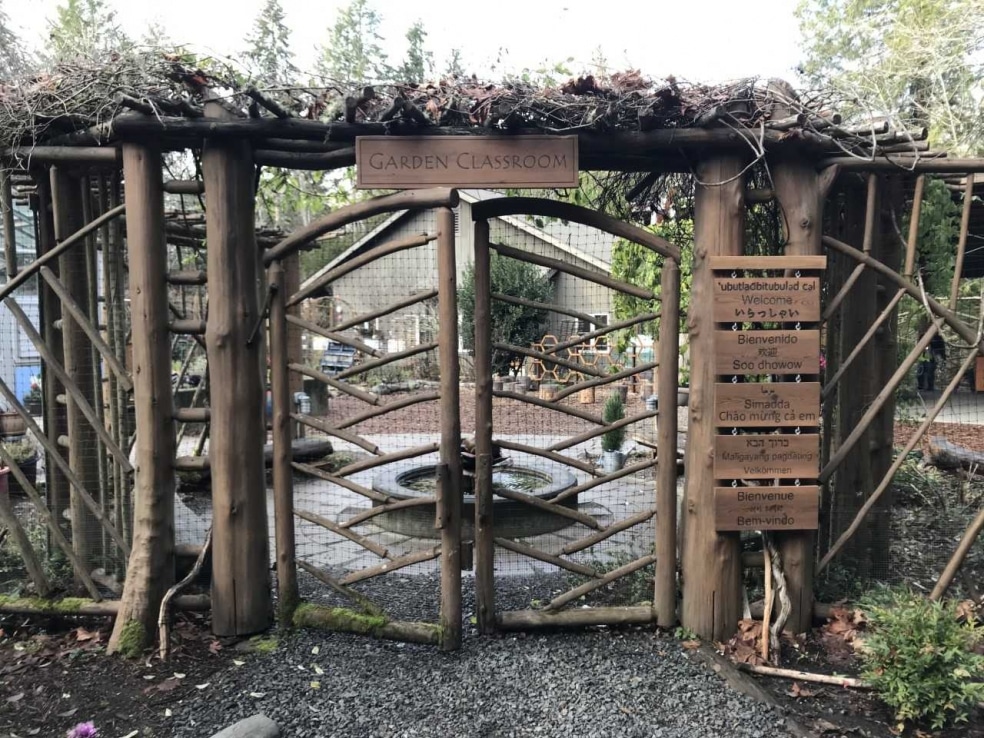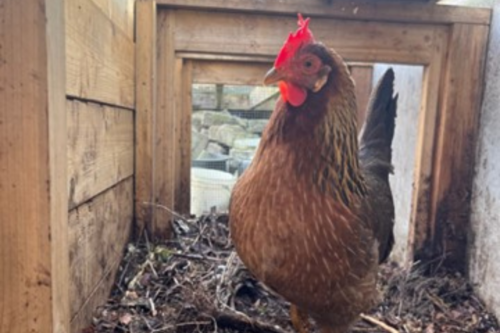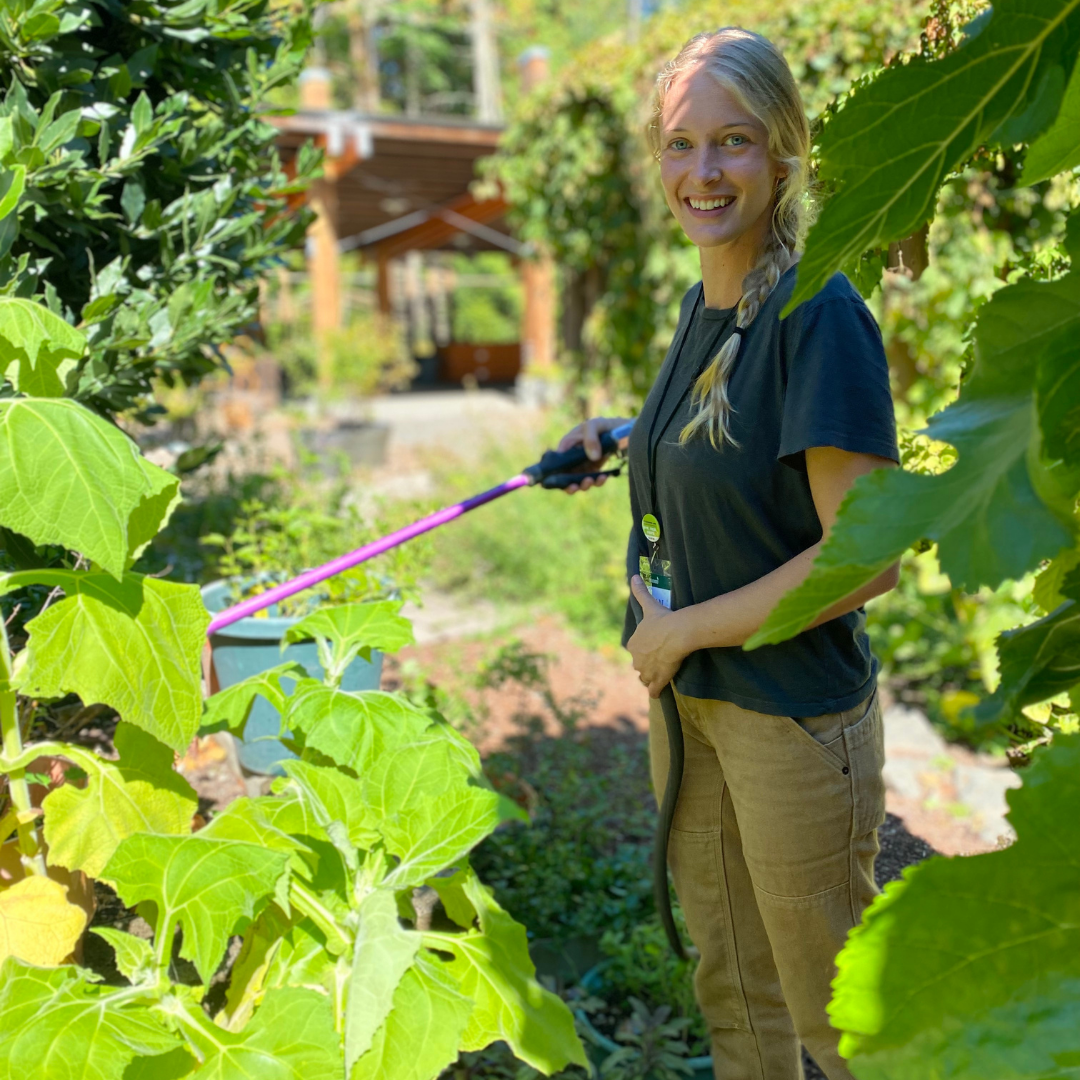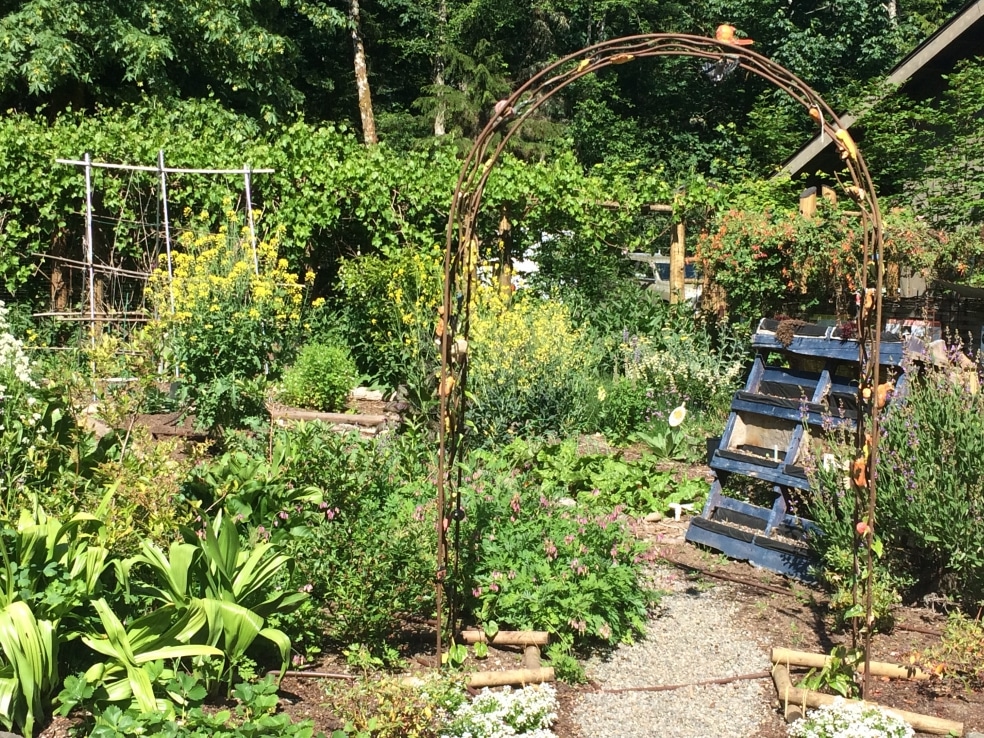February brings a new chapter to the IslandWood garden!
Author: Mónica Mesquita
IslandWood’s Garden Classroom welcomes all students with wide open arms, always ready to nurture and guide. The garden’s warm welcome is felt in its winding paths and low lying beds, in its generous ability to feed us all year round, and when students become experts on the plants and pollinators that fill the garden with life. Now our welcome is also expressed by a beautiful new sign.
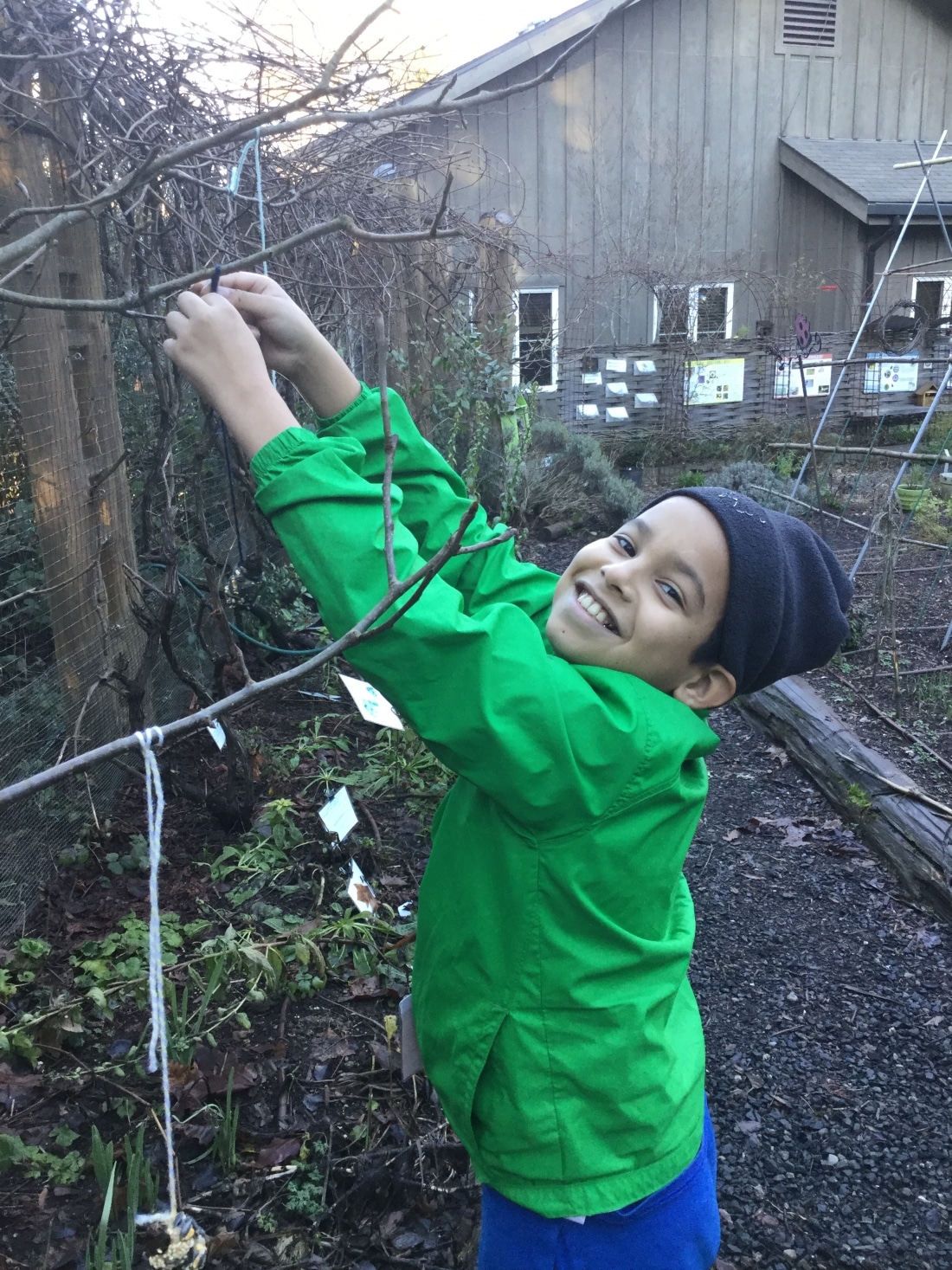
A School Overnight Program student hangs a bird feeder in the garden.
Designed by our garden educators and long-time volunteer Pete Wiedman, the sign says “welcome” in fifteen languages spoken by the young people who attend IslandWood’s School Overnight Program (SOP).
It has become a tool for our instructors to learn more about their students who often notice the sign and point out the languages they know. For example, before Team Marsh entered the garden their graduate student instructor Hannah Levy asked if they wanted to point to any of the languages they knew. The students quickly pointed to Filipino, Vietnamese, Japanese, and Spanish. One of the quietest group members even made her way to the front to point out “welcome” in Vietnamese. Other times students become the teachers without needing an invitation, like when one member of Team Wind joyfully exclaimed “Oh my god! Bienvenido!” and shared what language that was with her group.
The sign can also support a planned lesson. One of our instructors Alex Guest designed a thoughtful lesson in which students considered, “Who are gardens for? And why?” Once the question was posed, the chatter among the group was quick and deep—they considered the roles of humans, pollinators, insects, and slugs. The group concluded that gardens are for everyone—for every living thing, because all living things can contribute to the ever-changing garden ecosystem. Once the discussion slowed, Team Estuary proceeded to make fir cone feeders and place them around the garden to invite in birds and squirrels. On their way out, the students noticed the sign and hung one last feeder on the gate—even the birds are welcome here.
Our volunteer Pete, who makes all the outdoor signs at IslandWood, chose a vertical design which meant only one language could fit at the top. The garden educators wanted to be thoughtful about which language would be read first. As a way of acknowledging the Suquamish people, who are the original caretakers of the land IslandWood is on, Lushootseed appears first. Lushootseed is the language of the Coast Salish people, which includes the Suquamish, whose regions extend along the shores of the Puget Sound from modern-day Olympia to the Skagit watershed and from the Hood Canal to the Cascades. Students’ curiosity about the Lushootseed “welcome” offers instructors the opportunity to share with them, perhaps for the first time, the name of the Indigenous inhabitants of the land they are on. Placing Lushootseed at the top of the welcome sign is a powerful step toward inviting and honoring the legacy of Indigenous peoples.
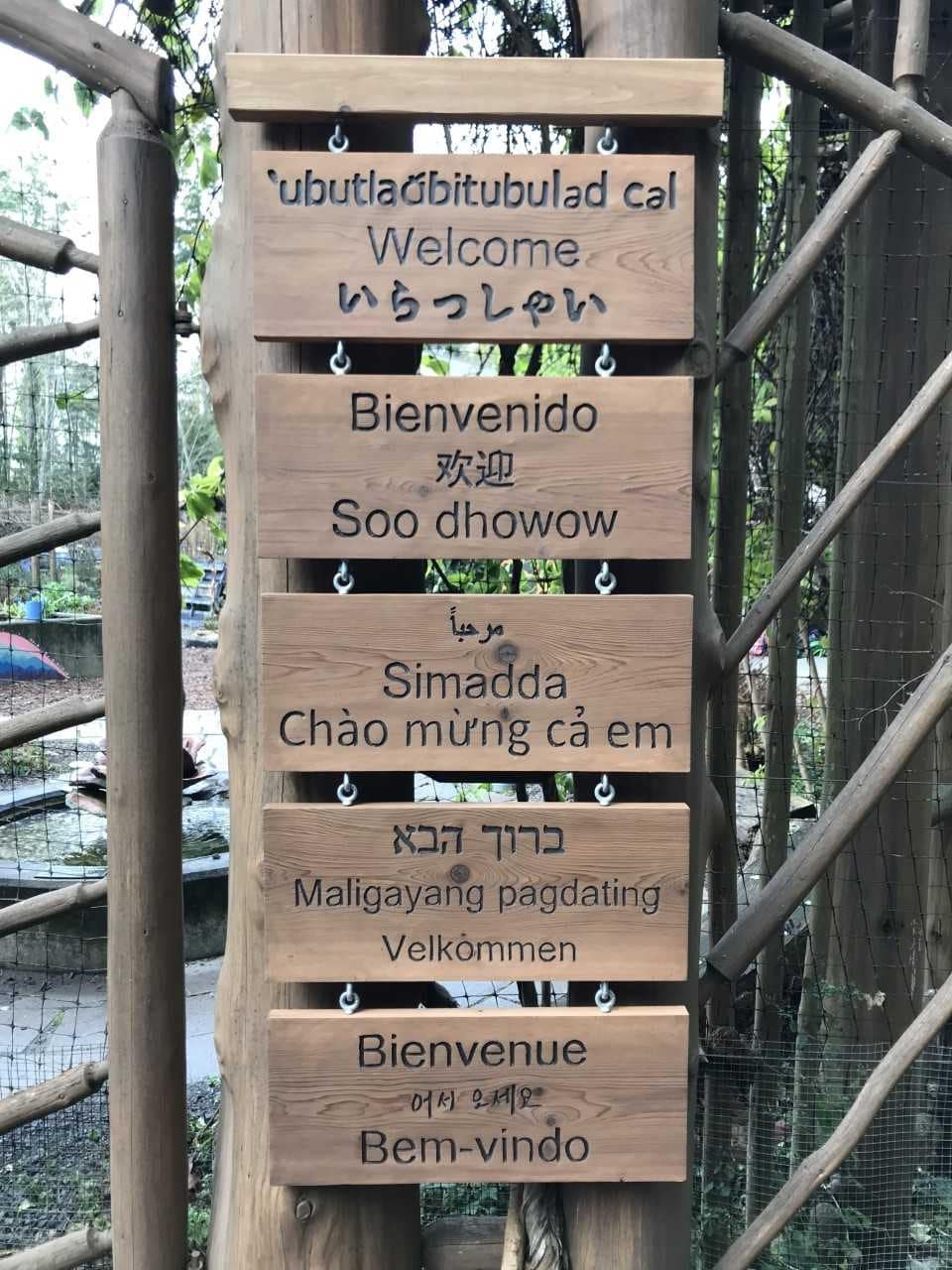
A close-up photo of the different languages represented on the garden welcome sign.
A garden sign that mirrors the communities we serve is one more way we welcome and make all at home.

